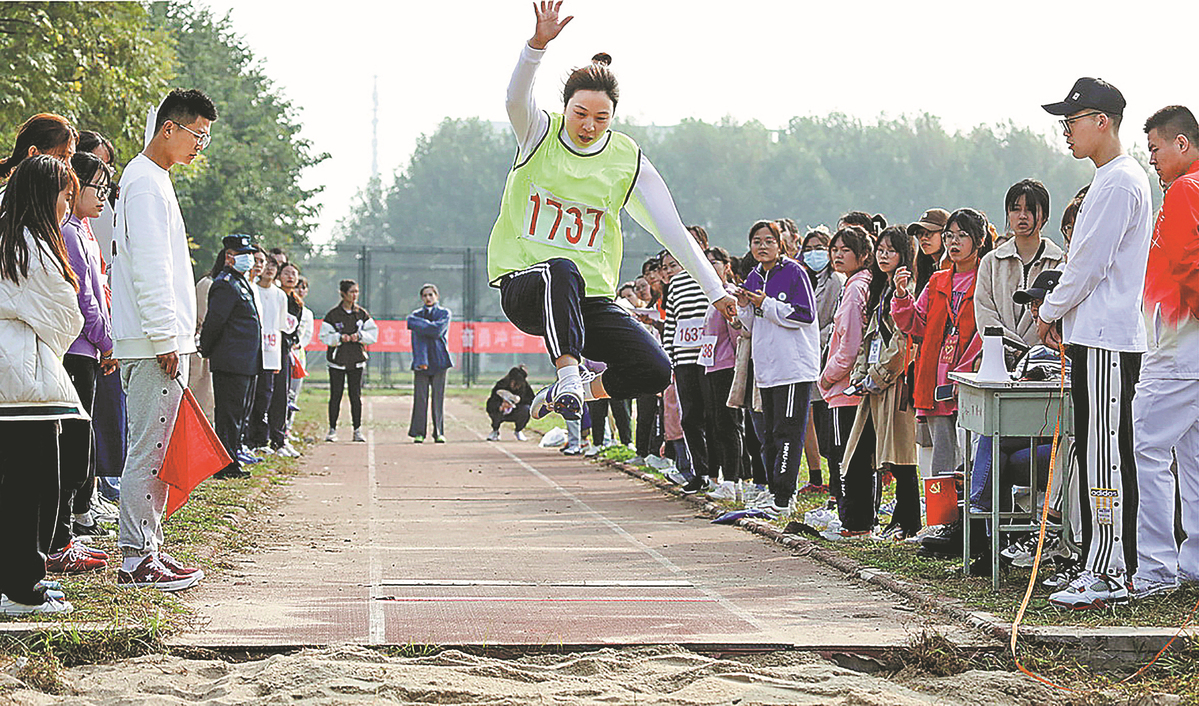Students put their physical skills to the test


Universities take action after fitness levels fall in recent years
University freshman Li Siyi was just one of the students who were not looking forward to taking an 800-meter running test on the school's playground last month.
"The whole class was silent and everyone looked as though they feared the worst. When I was at the starting line, my heart was pounding and I felt helpless and worried about the physical exertion I was about to face," she said.
Li, from Beijing Foreign Studies University, said she did not sleep well for several days before the test, which was a taboo subject in her dormitory. Even her roommate, who is extremely fit, did not want to mention it.
The main reason for the general dislike of physical education tests and exams among students is because PE is not considered an important subject at primary and secondary school, and such courses have long been overlooked in favor of academic ones, said Li, who has never liked PE.
She added that although the high school entrance exam, or zhongkao, includes a PE test, it has a significantly lower weighting than academic subjects, while the all-important national college entrance exam, or gaokao, does not include PE.
Li underwent intensive training and preparation for the zhongkao PE test in the final year of middle school, which she described as "a memory that will haunt me forever". But after she started high school, she said PE courses and tests became more of a formality, as students' academic performance was usually given top priority.
Undergraduate students in China are required to have their Body Mass Index and lung capacity checked. Male students are tested on a standing long jump, 50-meter run and pushups, while females are tested on sit-ups. Each semester, male students are tested on a 1,000-meter run, and females on an 800-meter run. Each item carries 100 points and the weighted score for all items is a student's final total.
In 2007, the Ministry of Education issued a regulation, which stated that students who failed to get 50 points out of 100 for the weighted score would not receive a diploma. In 2019, the ministry increased this requirement to 60 points.


















